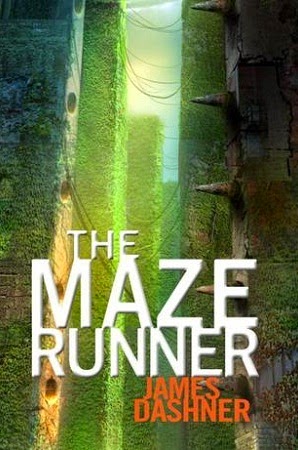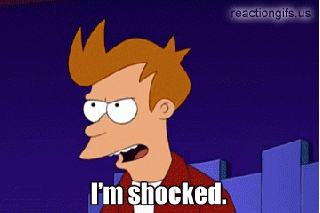Written by: James Dashner
Published: 2009
Synopsis: When Thomas wakes up in the lift, the only thing he can remember is his name. He’s surrounded by strangers—boys whose memories are also gone.
Nice to meet ya, shank. Welcome to the Glade.
Outside the towering stone walls that surround the Glade is a limitless, ever-changing maze. It’s the only way out—and no one’s ever made it through alive.
Everything is going to change.
Then a girl arrives. The first girl ever. And the message she delivers is terrifying.
Remember. Survive. Run.
___________________________________________________________________________________________________________
“If you ain’t scared… you ain’t human.”
Writing reviews for Young Adult dystopia is hard guys. They're so formulaic that even if they're amazing it's hard to make the review sound like something other than paint-by-numbers. The Maze Runner is yet another in the long line of Young Adult dystopian novels. I wish I could say that it broke the mold and was a completely unique inclusion to the genre, but it's not. That isn't to say that it's not an entirely enjoyable read or that it doesn't do some things differently but there might be big chunks of this review that echo earlier YA reviews I've written.
One of the things I've really enjoyed about this little YA renaissance is the prominence of female characters in the narratives. Are they necessarily three dimensional characters? Eh, that's hard to say. But at least they're there. The Maze Runner is an almost entirely male orientated novel. The protagonist is Thomas, who wakes up in a metal elevator at the start of the novel with no memories except that his name is Thomas. The elevator leads him up into the glade, a large patch of land that's surrounded by immense walls that form a maze. Thomas is thrown head first into a semi-structured society of teenaged boys, not quite Lord of the Flies but there's a feeling that that kind of insanity lingers not too far in their past. After his first day the male-dominated narrative is jarred with the arrival of another newbie which is not only unheard of in the strictly organised Glade but especially so because this newbie is a female. Theresa marks a different direction for the Gladers, not only because her gender represents a shift in dynamics but she literally shows up with a note saying that everything is going to change.
I actually think that the single female in a male dominated environment could have made for a very interesting novel. And it's all there bubbling below the surface, it just doesn't quite make it up. Why does the arrival of a female make such a huge impact? Why haven't there been females before? Is she at risk with all of these testosterone fueled teenage boys? Does she inspire rage or confusion or jealousy? None of this is really addressed, instead she's just an instrument of change. Her gender is ultimately immaterial - apart from the relationship that is (of course) sparked with Thomas. In a way that's kind of fantastic. Hell yeah her being a lady doesn't matter. Except in this environment of course it matters. Some of these boys have been stuck in a maze terrified of being torn apart by monsters for 2 years. Even if they didn't look at her sexually or romantically, her gender would inspire all kinds of other emotions and complications. She could be a reminder of the mothers and sisters they no longer remember, or a painful acknowledgement of a side of their life that's completely shut off from them. And what about from her perspective? This was perhaps my biggest issue with the novel. Sure finding a way out of the maze and the hints at being viewed by some Big Brother force are reminiscent of other YA series, but ultimately the general narrative is a fresh take on a well-mined genre. If this aspect of the novel was better addressed I think I would probably recommend this book more heartily.
What I quite enjoyed was the unfolding mystery of the maze and the action sequences as the book progressed. It was a little slow to start but once the wheels started to churn it was far more engrossing. Perhaps not engrossing enough to keep me reading on in the series, but engrossing enough that I'm interested in seeing the film this weekend. One thing I'm not looking forward to though is the clunky made-up language used to replace actual swear words. If I actually have to watch an actual person say "you are the shuckiest shuck faced shuck in the world" or "I've been shucked and gone to heaven" with their actual faces I will vomit in the middle of the cinema.










